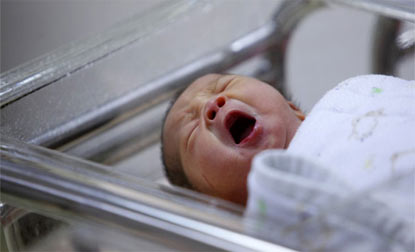 Feb 10: According to a report by leading experts, it has been revealed that about 78,000 infants born with congenital heart disease in India die every year because of inadequate health care facilities.
Feb 10: According to a report by leading experts, it has been revealed that about 78,000 infants born with congenital heart disease in India die every year because of inadequate health care facilities.
In a medical camp,Dr Murtaza Chisti, Chief Cardiac Surgeon of the Mahatma Gandhi Cardiac and Critical Care Centre told that "Every year 1.5 lakh infants were born in India with congenital heart disease."
The acute lack of awareness and ignorance in people coupled with insufficient medical facilities have further pushed up the cases of congenital heart disease. And most of these children with such cases don't survive.
"Work-related tension coupled with changed lifestyle of young people that caused them to hurry and scurry for work had resulted in even people in the age group of 30 to 40 years get heart attacks or suffer from heart-related problems," he said.
"Controlled diet with less fatty and oily, and non-vegetarian food, non-consumption of sweets, coupled with adequate rest could reduce the incidence of heart problems.He enumerated diabetes, high blood pressure, mental tension, increase in cholesterol as the contributory causes for heart attacks.
Dr ML Swarankar, chairman of the India Education Trust, said that India had the dubious distinction of having the largest number of deaths in Asia owing to heart attack. More and well-equipped cardiac centres were needed to bring down the number, he added.





Comments
Add new comment